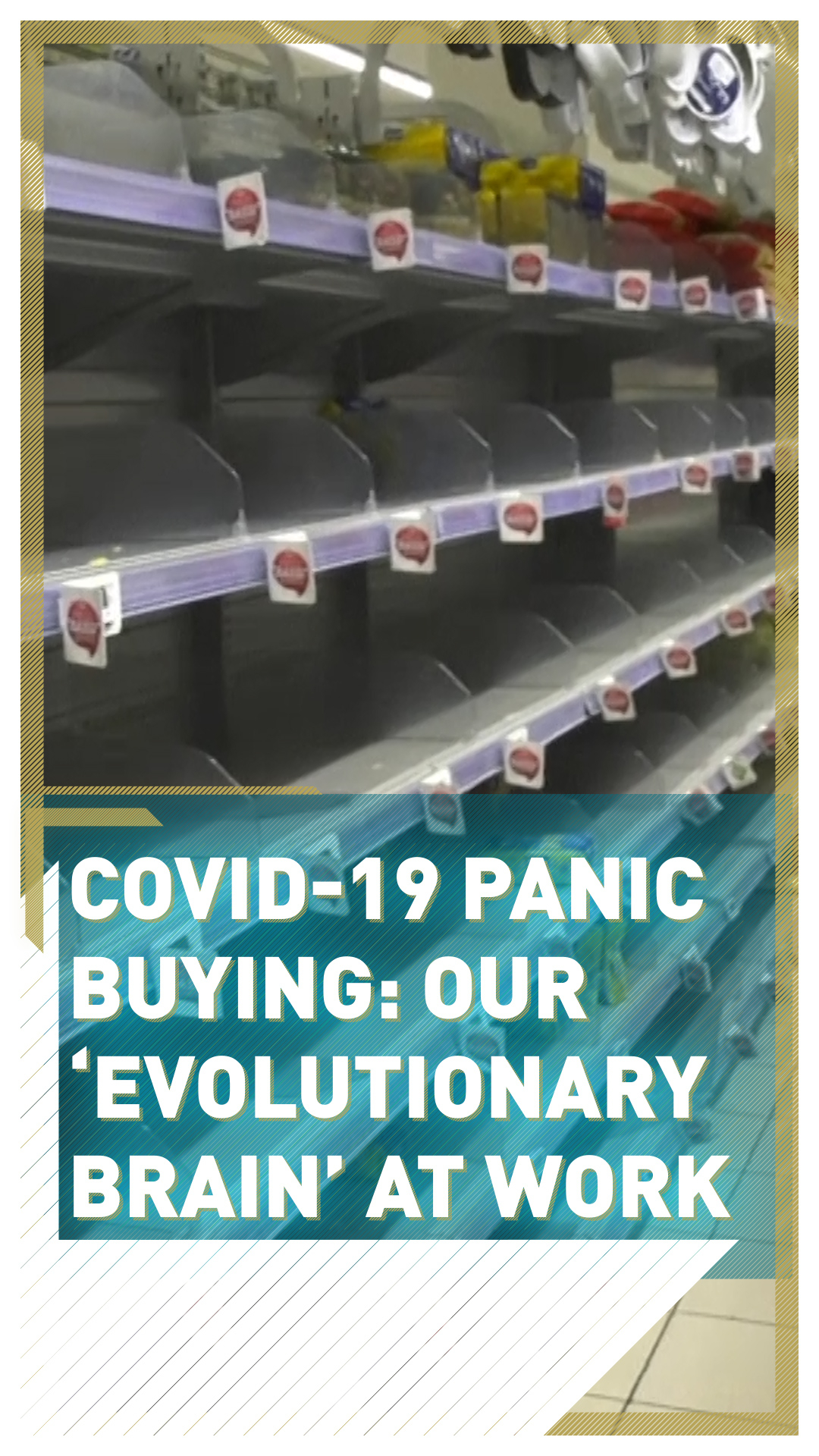03:36

Videos of people fighting in supermarkets went viral over the weekend as customers across the world began panic buying amid the COVID-19 outbreak.
The virus, which has now killed more than 4,000 people and infected more than 110,000, has led to panic buying, empty shelves and tension at supermarket checkouts as nervous shoppers have stocked up on canned goods, non-perishables and cleaning products.
Consumer psychologist Phillip Graves, told CGTN Europe that the situation was a "perfect storm" for panic buying.
Amid the outbreak, accelerated by media reports, "people are having their attention drawn to certain items, they're hearing that people are panic buying and they're going into shops, seeing that there are spaces on the shelves. All of that tends to fan the flames," Graves explained.
The phenomena has lead to UK supermarkets rationing certain goods including toilet paper to prevent panicked customers stockpiling.

Shelves usually stocked with toilet rolls are seen empty in a supermarket following panic buying. /Saeed KHAN/AFP
Shelves usually stocked with toilet rolls are seen empty in a supermarket following panic buying. /Saeed KHAN/AFP
For Graves there is an explanation behind the toilet paper rush. "It becomes a product that everybody thinks about buying on every single trip. That, combined with the fact that it's very conspicuous when people are buying it, because it's a bulky item and when it's not on the shelves ... people have a very strong sense that it is being bought by lots of other people."
In the UK, panic buying has got so bad that the country's prime minister, Boris Johnson, told the public to follow scientific advice, adding: "There isn't any need for people to buy stuff in."
Despite the government's advice, panic buying is hard to stop – much like the way a virus can spread across a society, accelerated by our "innate responses," explained Grave.
"We know that the human mind is involved with this tempering force of loss aversion. To help us make, in inverted commas, 'better decisions', decisions that are more likely to help us survive in our evolutionary past. And what we're seeing is, if you like, the evolutionary brain played out in this particular set of circumstances," he said.